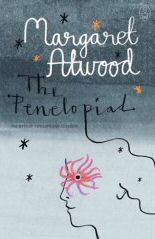
Walter M. Miller, Jr., A Canticle for Leibowitz
About four years ago I encountered a list of the top science fiction novels of all time, which included many I would have expected to see on the list (e.g., War of the Worlds, Stranger in a Strange Land, Brave New World) and several I had never even heard of (Roger Zelazny's Lord of Light and Connie Willis's To Say Nothing of the Dog, for instance). A Canticle for Leibowitz fell into the latter category and, after scoring used copies of the novels on the list that I hadn't read, I set about reading them as time permitted. Only now have I gotten around to the Miller novel.
A Canticle for Leibowitz is flat-out one of the best things I've read this year, and I can't believe it languished on my shelf all this time.
In terms of setting, the novel focuses on post-nuclear holocaust civilization as it struggles its way through about 1,800 years of development. Divided into three sections, the first section takes place about 600 years after the "Flame Deluge" (i.e., the present-day's nuclear holocaust) as civilization works its way thru a new Dark Ages; the second section takes place 600 years after that, as civilization undergoes a new Renaissance and Enlightenment; the final section brings the novel full-circle as mankind once again enters a Space Era, bringing with it the renewed capability for nuclear annihilation.
The story itself follows a cloister of monks who have managed to base their entire belief system and way of life on the writings of the Blessed Martyr Leibowitz: a collection of blueprints, letters, and even a shopping list. Miller makes abundant use of Latin phrases and terminology to fashion the world of the monastary, and the novel -- while beginning with a humor that is dark and reminiscent of Dr. Strangelove -- steadily develops a vision that is altogether bleak.
Read the book and check out the soundtrack. Great stuff here!

